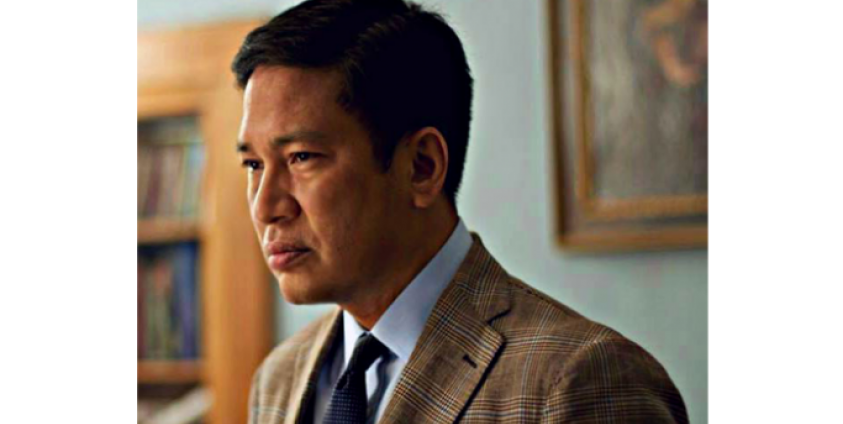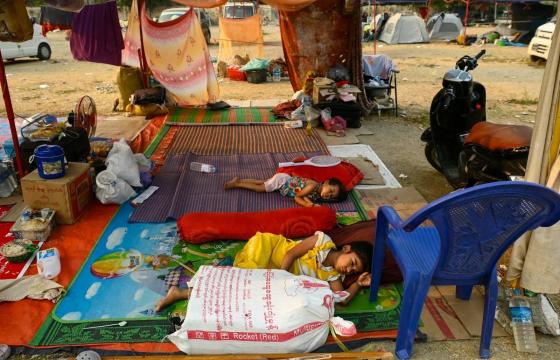Dr Thant Myint-U — Myanmar is facing two new crises: (1) a health crisis caused by the Covid-19 pandemic, and (2) an economic crisis caused by the global reaction to the pandemic.
No one knows how severe the health crisis may be. No one knows the true number of cases around the world or the true number of deaths, which means that we can only guess the virus's lethality. So much about this virus remains to be understood. In Myanmar, the number of confirmed cases and deaths is extremely small by global standards, almost negligible. This may change very quickly for the worse, as we've seen in other countries, but no one can say for certain.
What we can say for sure is that Myanmar economy is already facing a severe economic crisis that will only get worse over the coming months without radical state action. What's important is that we also understand that the crisis is an opportunity: to radically reshape Myanmar's economy in a direction that is good for all it's people, including and especially the poorest and most vulnerable.
'Economics' is sometimes viewed as a field for 'experts'. In reality, 90% is common-sense and 100% is political. It's about how wealth is created and shared in a society. In Myanmar over the past 30 years we've seen the evolution of an extremely unfair society, where the vast majority work incredibly hard for very little, without security or basic public services, like good healthcare and education.
For Myanmar, 'economics' is also about development: how to go from being one of poorest countries in the world to one that can guarantee a good standard of living for all its citizens. Almost all countries that had become rich have done so through a process of state-led industrialization, in which the state grew specific sectors of the economy (like textiles or steel) and helped national companies compete on the world stage.
As Myanmar faces today's economic crisis, it has two twin opportunities: to lay the foundations for a new welfare state and for a new industrial policy.
Myanmar first needs an emergency response. Millions of people are now at risk of losing their livelihoods. These include not only garment workers, but people in nearly all sectors from mining to tourism. They also include three million or more Myanmar people working in Thailand and overseas; billions of dollars in income may soon be lost to families all around the country.
Part of the economic crisis is due to changing global conditions, for example disruptions to global trade. Some is because of the social-distancing measures necessarily undertaken to fight the coronavirus. Thousands of Myanmar business may collapse over the coming weeks and months.
There is an absolute need to save lives threatened by the pandemic. But it is equally important that steps taken are proportionate to the threat. It is also important that the economic costs are carefully weighed and countered through urgent state action.
In a country as fragile as Myanmar, with dozens of non-State armed organizations and militia, weak state institutions, and tens of millions of poor people with barely enough for daily survival, preventing a severe economic downturn is as important as preventing the spread of Covid-19.
Around the world, governments are spending trillions of dollars, 10, 20% or more of GDP to rescue businesses and help ordinary people. Myanmar's response should be equally if not more aggressive. Myanmar has more to lose than almost anything other country if its economy collapses.
The principal aim should be to get money into the hands of ordinary people as quickly as possible. Businesses that would otherwise lay-off workers can be funded to keep paying their staff. But as most people work in the informal sector or are migrants returning from Thailand, the state must also send money through direct transfers, for example through digital pay systems. Myanmar should be thinking of spending billions of dollars (trillions of kyats) immediately to offset lost income.
The money can come from a range of sources: (1) emergency reallocation of the existing budget; (2) bond sales; (3) assistance from International Financial Institutions; and (4) borrowing from the Central Bank.
There is no reason for the Central Bank now not to create the money needed as well as lower interest rates. The world economy has changed. The main threat over at least the coming few years is not inflation but deflation. Both Myanmar and the world is at risk of a Depression - the first since the 1930s.
The spending of billions of dollars to counter the crisis should be an opportunity, as mentioned, to reshape the economy in a direction that is both more equal and can fuel future development.
Myanmar has no social safety net. Ordinary people have no guarantees of income or healthcare. The structures set up now to meet the current crisis - to get money into the hands of ordinary people and to scale up access to healthcare – can be more than just as an emergency response and be instead the first step towards a strong welfare state.
A welfare state that provides for all people equally, without discrimination, should be at the centre of Myanmar's democracy. It is also the key to peace.
Spending billions of dollars now can also lay the foundations for a post-pandemic industrial strategy. The future world economy may be very different from the one of just a few months ago. Tourism may not return to previous levels for years or longer. Migrant workers may no longer be welcomed in other countries. World oil and gas prices have collapsed. Massive government spending around the world will impact currency and credit markets as never before.
Myanmar needs a strategy. The state can help businesses now to survive and make sure workers are not laid off. But it should also think long term about which sectors it wants to grow and which businesses to promote. Spending now should be linked to the best possible analysis of where the global economy will be in 5-10 years. It should be linked as well to an analysis of how different kinds of big job-creation programmes might help end violent conflicts and prepare Myanmar for climate change. And it should be linked to the a vision of the economy – how wealth will created and shared in a future Myanmar.
All this requires a new institutional set-up. Spending should be transparent and accountable and strengthen democratic processes. Trillions of kyat cannot be spent though existing institutions, which grew up in a different age. That's a big challenge but not insurmountable. There is also no other choice. Unless Myanmar meets the current economic crisis with a clear economic strategy and maximum firepower the future -even without a major disease outbreak - will be bleak. If Myanmar seizes the opportunity, 2020 could be the start of a new and brighter tomorrow.
Dr Thant Myint-U was the director of policy planning at the UN's Department of Political Affairs from 2001-2006. During that time he led efforts to understand emerging global threats, including pandemics, and their links to peace and development.








